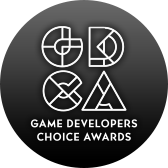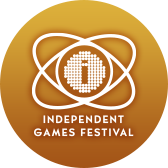

The Many Faces of Level Design
Christopher Totten
November 4, 2022
Repeat: December 9, 2022
9 am-5 pm PT
Course Fee
$949- General (Ends December 5)
Seating is limited to ensure each student has time with the instructor, and registration for these courses will be closed when capacity is reached.
Subscribe to the official GDC Newsletter to receive info on future GDC Masterclass courses and other offerings.
Course Information
Course Description
When people think of level design, they usually think about big 3D worlds in the most powerful new engines, but it’s possible to practice your level design skills outside of these technically intensive environments. Attendees make a series of level design prototypes with small game making tools to hone their ability to make exciting experiences for players. Topics of the exercises include building around strong core mechanics, puzzle design, filling levels with interesting decisions, and pathfinding.
Course Type
One-Day Course: This is a single course that takes place over one full eight-hour day with breaks.
Intended Audience
Level designers from indie to AAA, game designers, game design instructors looking for new level design practices, students.
Key Takeaways
- Learn a variety of prototyping tools such as tabletop, Twine, 2D game engines, and grayboxing.
- Build experiences that make game levels engaging.
- Identify the impact that spatial quality has on gameplay.
- Craft game prototypes with a strong focus on player engagement.
- Develop a strong sense of macro‐level design, micro‐level design, and pacing.
Prerequisites
Attendees will be asked to download some paper prototyping materials.
Instructor Bio
Christopher Totten is an Assistant Professor of Game Design at Kent State University. He is also the founder of Pie For Breakfast Studios, a Northeast Ohio‐area indie game company. He has done work as an artist, animator, level designer, and project manager in the game industry. He holds a Masters Degree in Architecture with a concentration in digital media from the Catholic University of America in Washington, DC. Chris is an organizer for the Smithsonian American Art Museum Indie Arcade, a lifetime member of the International Game Developers Association (IGDA), and an Editorial Board member for the peer‐reviewed journal, VGA Reader. Chris has written articles featured on Gamasutra, Game Career Guide, and other publications and is a frequent speaker at game industry conferences such as GDC, GDC China, East Coast Game Conference, GDEX, and others. He is the author of An Architectural Approach to Level Design, published with CRC Press/AK Peters in 2014 (2nd edition published in 2019) and Game Character Creation in Blender and Unity, released by Wiley Publishing in 2012. He is also the editor of the collected volume, Level Design: Processes and Experiences.
Preferred Title: Assistant Professor & Founder
Company Name: Kent State University/Pie for Breakfast Studios



